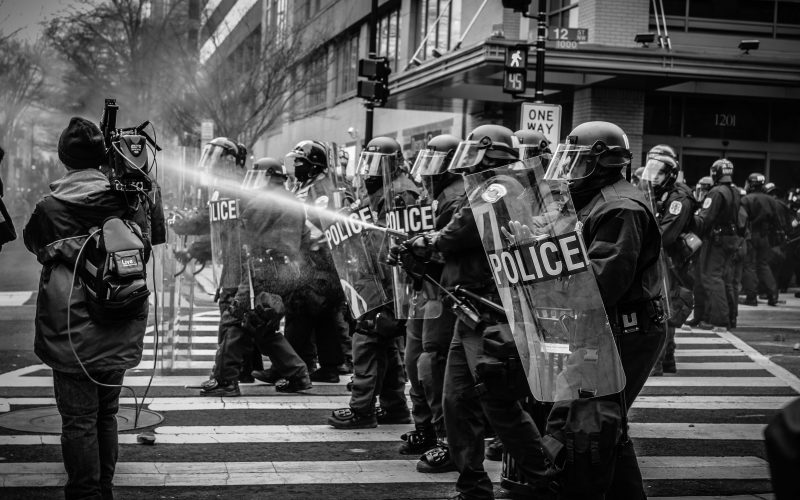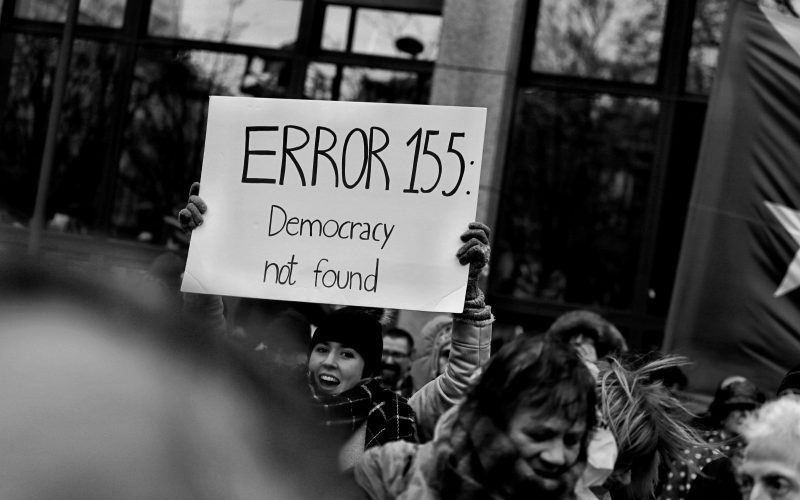Centrism is one of those terms that people put a lot of effort into claiming. It doesn’t seem to matter where the political Overton Window is, people (and parties) always try to insist that they have the centre ground.
People tweet about how centrism is the best way. That being a centrist means realising your side doesn’t have all the answers. That centrism is somehow synonymous with reason, with the sensible middle ground. The non extreme view.
Here in the UK, there’s lots of talk about how Britain is crying out for a new centrist party.
Why is this?
I believe it is firmly routed in the way politics is taught in the West. Think about it, for a minute. What is everybody taught from a young age? Communism is on the far left and Fascism is on the far right. Most people, understandably, want to be as far away from those two abhorrent ideologies as possible. Certainly anyone who has any grasp at all of 20th century history. And where is the furthest away from both of those on the standard, left/right political spectrum? The very centre.
I believe this is the reason why so many people claim the centrist position, even when they all disagree where it is. They want to believe that their position is reasonable. That their views are what normal people should have (if only they had the same information as them, as if often the case). Stray from the very centre? That’s a slippery slope to extremism, my friend!
One of the problems here is, of course, that Communism, Socialism and Fascism are all so similar. The idea that they are somehow on opposite ends of the spectrum falls down with minimal scrutiny. One of the reasons for this is that the political spectrum is not just left/right. The political compass, with its four quadrants, isn’t perfect but is a lot better.

The additional axes on the spectrum detail the difference between authoritarianism and libertarianism, whether you believe in force or freedom. A fan of state regulation? Top half. Tariffs on external goods? Top half. Nationalisation? Top of the top half. Believe in free markets? Bottom half. Free speech? Bottom half. Think everyone should be able to run their own lives? Bottom half.
It’s that authoritarian/libertarian axis that’s far more important to me. It doesn’t bother me if you’re on the left or the right, as long as you don’t want to run everybody else’s life. If you want to live in a commune, feel free? As long as you don’t expect me to subsidise you. If you want to control my life, however, I don’t care which side you’re on.
The standard left/right paradigm doesn’t really have anywhere for classical liberals or libertarians, either. Where am I supposed to go? Liberals are usually branded right wing simply for being ‘not left wing’, but nobody can ever explain to me the connection between small government, freedom loving Austrian economists and totalitarian, big state fascists.
Ask a random person now where they’d put people who want small government & low taxes on the standard scale and I bet 99% of them would place them on the right – regardless of whether they attribute those things as positive or negative in political or social terms. The same applies these days to freedom is speech. Safe spaces, no-platforming, thought crime – these are features of the current left. If you advocate true freedom of speech with no exceptions then you are automatically considered far right.
Ask those same people how those stances can lead to fascism and you’ll just hear crickets.
Maybe they’ll argue that by defending people who share (in their minds at least) abhorrent views, it somehow encourages and promotes those views and makes them spread. Heaven forbid that the light of day would allow intelligent people to challenge and refute what is necessary, and present evidence to counter the negativity.
But what they miss entirely is that fascism was about not being allowed a voice, by having to adhere to the party line or be “disappeared” by the secret police. Doesn’t sound like free speech to me.
And the idea that by thinking you may pay too much tax is somehow a route to racial superiority is as laughable as it is sad. Fascism and the right wing have been wrongly equated for too long. If anything left and right have now lost all meaning in political and social terms.
It’s no wonder people and their politicians have grabbed onto centrism with both hands as a way of distinguishing themselves from the extremists. The trouble is though, freedom now seems to be an extreme ideology. When did that happen?




